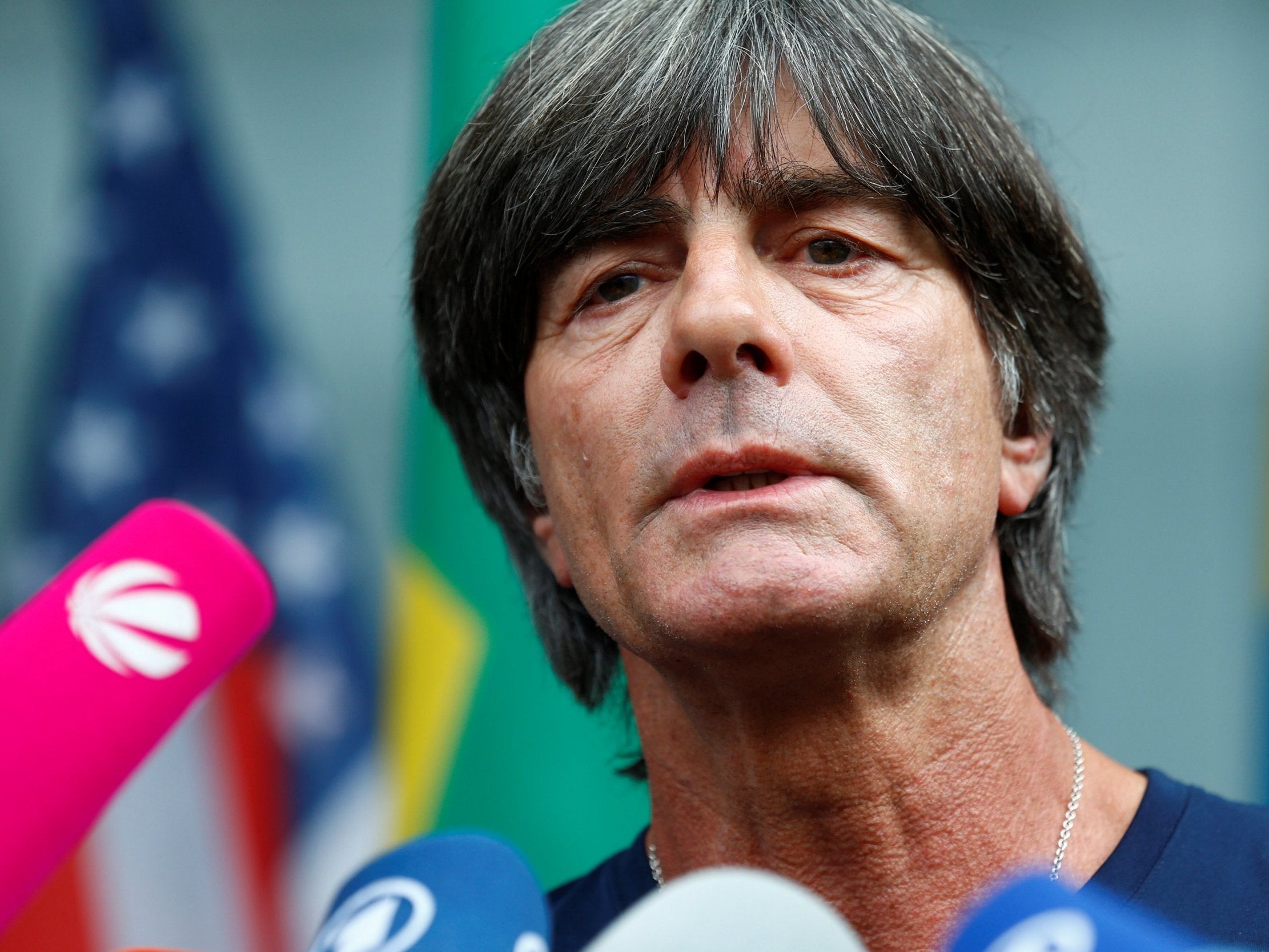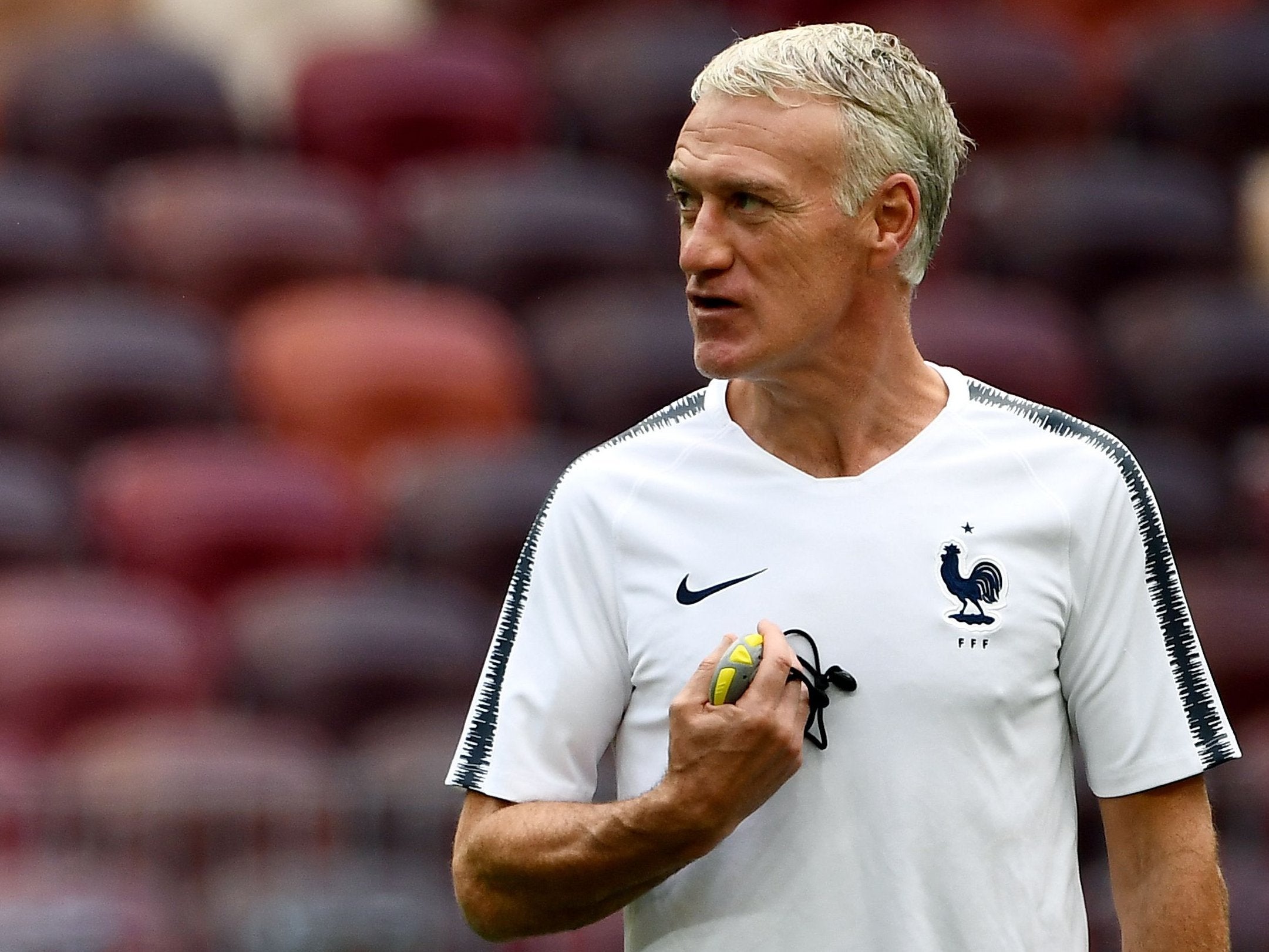World Cup 2018: With the field so open, now it's time to see if the game's big guns will finally step up
It does genuinely feel as if there has never been a World Cup like this, where no-one - not a single top-tier team - has put down a flagpole performance. Is this set to change in the last-16?
Immediately after at last securing a place in the World Cup last 16, a relieved Andres Iniesta summed up the feelings of pretty much all of the big sides that had done the same.
“We have completed our objective in getting out of the group,” the playmaker said. “Now comes something else.”
Now, however, something else is also required, something more. The defining trend of the group stages in this World Cup is that none of the top sides – Spain, Brazil, France, Argentina – have come close to convincing, and all look so beatable.
“It’s one of the characteristics of this World Cup,” Didier Deschamps proclaimed, and it is an irony that in a tournament where Italy are absent, along with all talk of their supposedly typical slow starts, so many others have kept the trope alive.
It is a concern for all other major coaching staffs, but the optimism is that everyone else is having the same problems, and the change in dynamic now that we’re in the knock-out stages will also bring a change in their teams; that the intensity of the occasions will naturally foster the focus required.
The optimism for everyone else in the last 16, however, is that the big guns won’t be able to change enough in time; that it’s just too short a timescale to fix so many issues, that there’s an opportunity waiting to be seized as a result, that, as has been said around the England camp already, this might be the “World Cup of the underdog”.
It is a feeling only strengthened by the structure of the latter-stages, since it is now guaranteed that one of Colombia, Switzerland, Sweden and England will be in the semi-final. From there, anything is possible. It might only take a mere 180 minutes for it to be the year of the underdog.
Whether that will actually be the case, or we just see all the big names go into overdrive, comes down to this defining issue of Russia 2018. It’s the big question: can the top names get anywhere close to top form in that kind of time?
It does genuinely feel as if there has never been a World Cup like this, where no-one – not a single top-tier team – has put down a flagpole performance. It’s usually at this point that at least one team has announced their arrival, and their assertive ability to go all of the way.
There has been nothing even close to Germany’s 4-0 win over Portugal in 2014; Italy’s 2-0 win over Ghana in 2006; Brazil’s 3-1 over Turkey in 2002 and so many other precedent performances.
By contrast, the tournament feeling that comes from an unprecedented lack of convincing displays is something only deepened by something else unprecedented, something that represents even this remarkable World Cup’s most sensational story: the first-round elimination of Germany, for the first time since 1938.
That timespan indicates how it’s so much more than the early fall of one of the favourites, or even the defending champions.

It’s also so much more than the early fall of a team who always seem to go far, who almost always win, as supposedly heralded by that Toni Kroos goal against Sweden – one of the moments of the World Cup, but also now one of the most pointless moments of match-winning genius ever seen.
It is the elimination of a side that, because of all of that, themselves have such a neurotic hold on so many of the other favourites.
Argentina, France, Brazil and England are teams who have all had psychological complexes about the Germans. But a massive weight has now been lifted, and a real path has thereby been cleared, thus further fostering the belief among the big sides they can now kick on, that they’ll be released.
There has been one theory that the big teams tend to concentrate more on preparation for the knock-out stages, in the justified belief their talent should mostly take them through against lesser sides before then, and this was something Aage Hareide seemed to agree with after his Denmark drew 0-0 with France
“The big countries, they take it easy at first,” Hareide said, “and they get stronger and stronger as the competition progresses. I think that will happen for France.”

And may happen for many of the others.
Dejan Lovren – who is part of an exciting Croatia side that maybe ready to take advantage of any new World Cup reality given how they already levelled Argentina – argued that some big teams may have been caught out by the unexpected intensity of nations with less inflated reputations.
“You play for your country, I would say you give everything to defend quite well, and maybe you approach the games a little bit more different than in the clubs. If you arrive to the World Cup, you want to stay as long as possible.”
“It is not easy, nobody gives you anything and things don’t always go the way you want,” Sergio Ramos complained.
Part of the perception of a greater openness may also be conditioned by history as much as what’s happened, since the past has created a certain standard for champions. It has been very rare that sides have gone from the brink of group stage elimination to the final, and it feels like it doesn’t quite compute; to so swiftly go from this near-fatal brittleness to legendary brilliance. It didn’t happen for England 1966, Brazil 1970, West Germany 1974, Netherlands 1974, West Germany 1990, Brazil 1994, France 1998 – and so many others.
But it has happened, and there are precedents that go beyond Italy and their 1982 win. That was one classic campaign where the intensity of the latter stages – albeit in this case a second group stage – suddenly saw something click. It was similar with France 2006, as their best players like Zinedine Zidane and Patrick Vieira ratcheted up and were everywhere on a pitch, with feeling like it almost came out of nowhere.
Spain 2010 meanwhile found a crucial new balance in attack by taking the tough decision to drop David Silva after the opening 1-0 defeat to Switzerland, while Argentina 1986 moved Julio Olarticoechea to wing-back in a move that settled the formation and finally brought wonders from Diego Maradona.
“Within a few games, we’d found ourselves,” Olarticoechea told The Independent in an interview before this World Cup. “We got more confidence and the group began to show its potential.”
As history as shown, this might yet come to pass for the tournament’s biggest sides in Russia.
Join our commenting forum
Join thought-provoking conversations, follow other Independent readers and see their replies
Comments
Bookmark popover
Removed from bookmarks